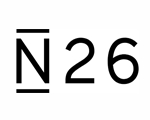Many expats are worried when they receive the request from the Dutch tax authorities (Belastingdienst) to submit their tax forms. As experienced expats will know, filing your tax returns for the first time in a country is rarely straightforward.
When you receive a tax return request from the tax office, you are obligated to file it. A task which is further complicated by the fact that all tax forms are written in Dutch, so if you don’t speak the language you will need someone to help you.
Occasionally expats won’t receive their tax forms in the post, this doesn’t mean you don’t have to file a return though. There are often more opportunities for expats to claim a tax refund, than for Dutch citizens, especially if they 30% ruling applies to you. Even if it doesn’t you should have your tax situation checked by an expat tax advisor so you are prepared and you don’t miss any possible rebates.
Are you liable to pay, or eligible for a refund?
Changes to your residency, and employment changes (a new job etc.) can entitle you to a refund. Education or training costs, and buying property also influence your tax status. Other approved deductions include financial support of children in education, charity gifts, and life insurance annuity payments.
Expats should be careful however, as financial assets abroad, and untaxed income, could be subject to tax liability and assessment.
Avoiding Dutch tax mistakes
For many non-Dutch speaking expats, preparing and filing your own taxes can be very difficult, which is why mistakes are pretty common. If you do make a mistake the impact may be only minor, however, large errors may result in a fine or a significant delay.
Expats often find it particularly difficult to file taxes for the year they move to the Netherlands. For this year you cannot file a tax return electronically, instead a hard-copy of the M-form must be submitted to the tax office by July 1st (the deadline for electronic returns is April 1st).
If you are a resident taxpayer, ie. you live and work in the Netherlands, then you need to file a P-form and your worldwide assets are taxed. People who do not live in the country, but have income which is eligible for Dutch tax are considered non-resident taxpayers, and will fill-out a C-form. Non-resident taxpayers can opt to be treated as residents for tax purposes (to gain access to Dutch tax deductibles for example).
To ensure you receive any tax rebates you’re entitled to, and to avoid mistakes when filing your tax return it’s recommended you use an expat tax specialist.
This article was submitted by J.C. Suurmond tax consultants




